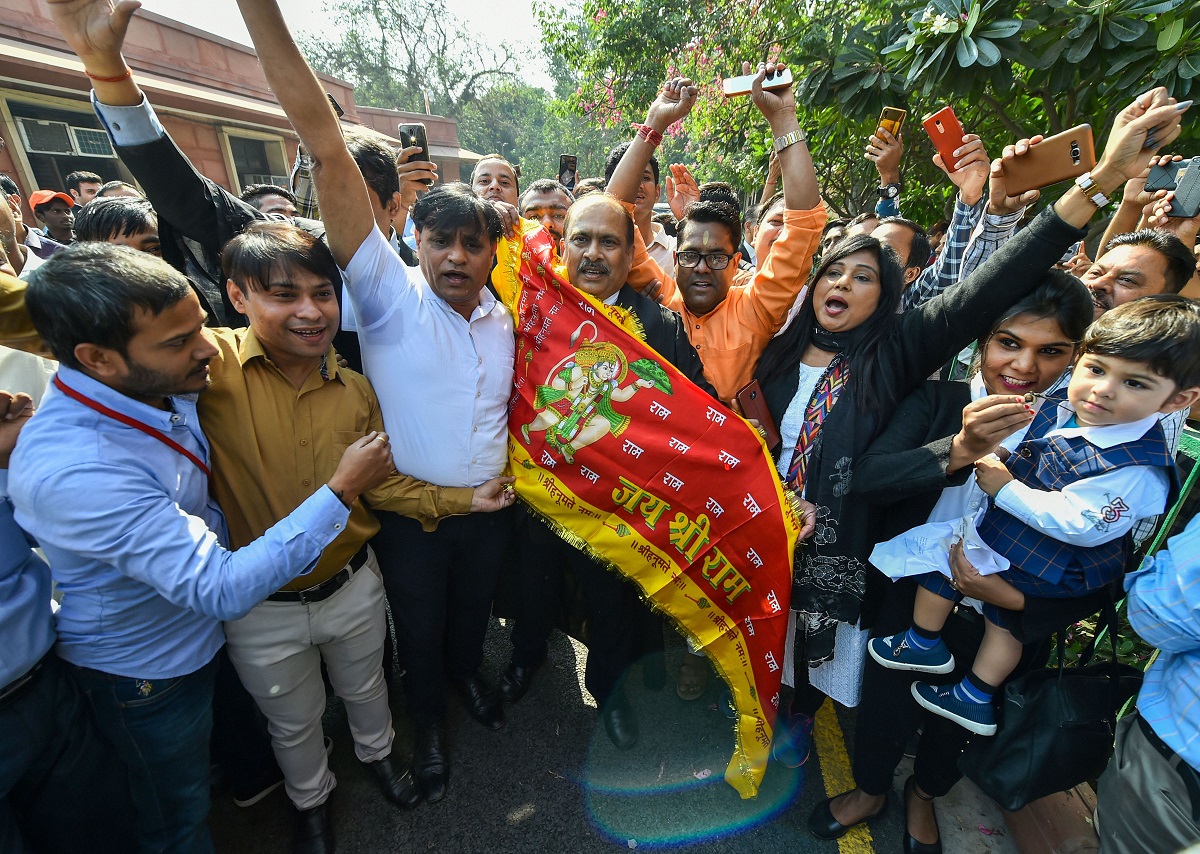
SC nod for temple at disputed site, alternate land for mosque
Announcing the much-awaited verdict in the Ram Janmabhoomi-Babri Masjid case on Saturday (November 9), the Supreme Court pronounced Ram Lalla, one the litigants in the case, as the rightful owner of the disputed land.

While pronouncing its judgement in the Ram Janmabhoomi-Babri Masjid case on Saturday (November 9), the Supreme Court said the mosque should be constructed at an alternate piece of land or a prominent site and a trust should be formed within three months for the construction of the temple at the site which many Hindus believe Lord Ram was born in.
The site was occupied by the 16th Century Babri Masjid which was destroyed by Hindu kar sevaks on December 6, 1992.
The bench, also comprising Justices SA Bobde, DY Chandrachud, Ashok Bhushan and S Abdul Nazeer, said possession of the disputed 2.77-acre land rights will be handed over to the deity Ram Lalla, who is one of the three litigants in the case. The possession, however, will remain with a central government receiver.
Also read | Multi-layered security arrangements in place in Ayodhya
The Supreme Court observed that the Hindus have established their case that they were in possession of the outer courtyard and the UP Sunni Central Waqf Board has failed to prove its case in the Ayodhya dispute.
The apex court said the extensive nature of Hindus worshipping at outer courtyard at the disputed site has been there, and the evidence suggests the Muslims offered Friday prayers at the mosque which indicates that they had not lost possession of the site.
It said that despite obstruction caused in offering prayers at the mosque, the evidence suggests that there was no abandonment in offering prayers.
The apex court also said that the underlying structure below the disputed site at Ayodhya was not an Islamic structure, but the Archaeological Survey of India (ASI) has also not established whether a temple was demolished to build a mosque.
Further, it was observed that terming the archaeological evidence as merely an opinion would be a great disservice to ASI.
Also read | Ayodhya verdict: Aligarh varsity urges people not to spread rumours
The court also said that the Hindus consider the disputed site as the birthplace of Lord Ram and even Muslims say this about that place.
The faith of the Hindus that Lord Ram was born at the demolished structure is undisputed, the apex court said.
The bench said the existence of Sita Rasoi, Ram Chabutra and Bhandar grih are the testimony to the religious fact of the place.
The apex court, however, said that the title cannot be established on the ground of faith and belief and they are only indicators for deciding the dispute.
Also read | Ensure law and order in view of SC verdict on Ayodhya: Gehlot to police
You can't add multiple events in the same post, page or custom post type.


